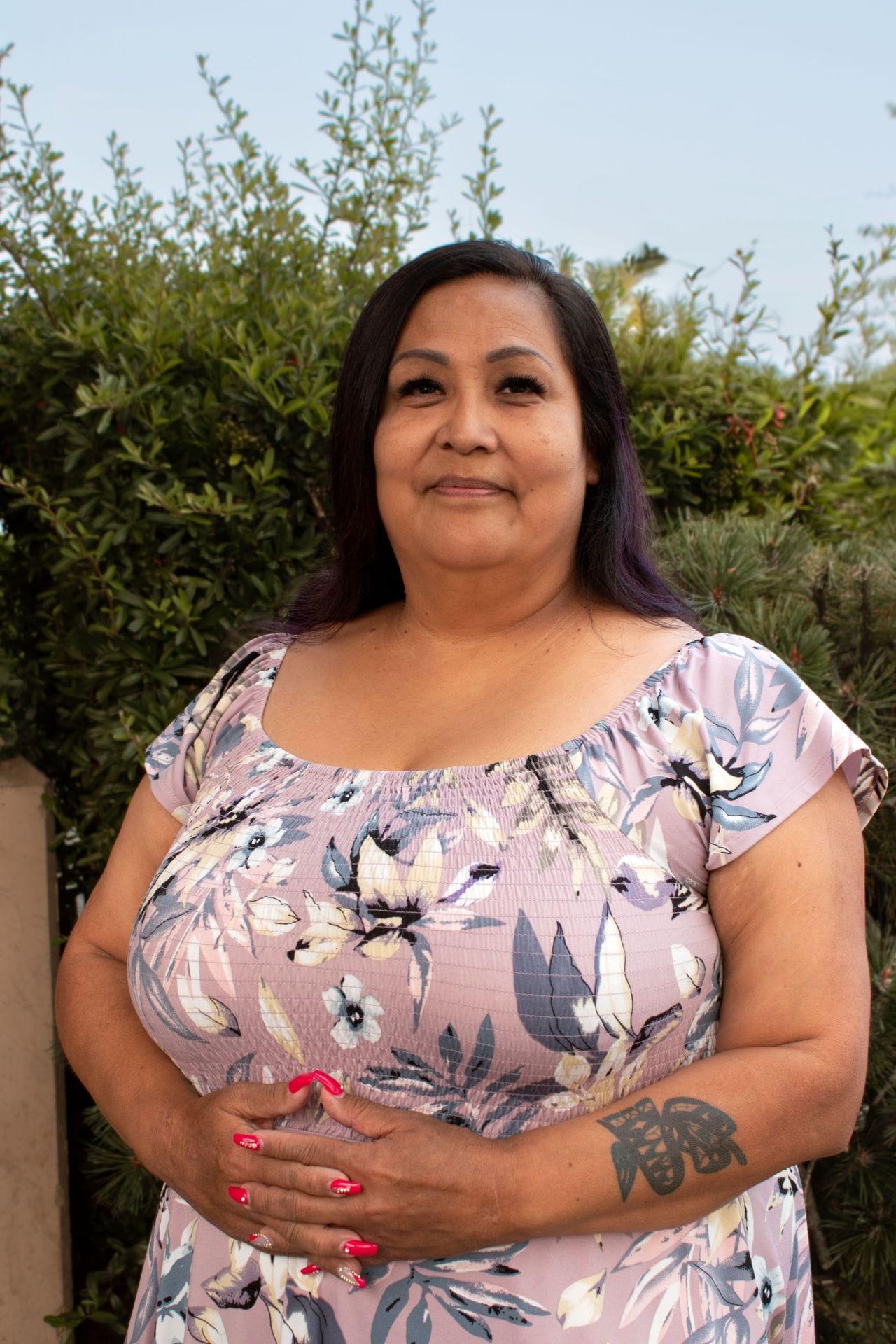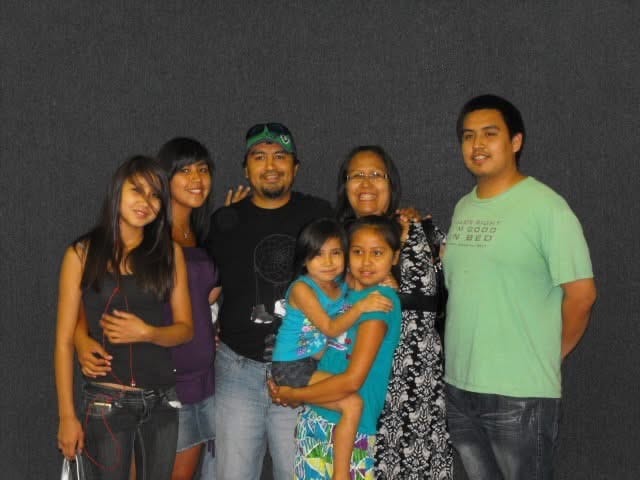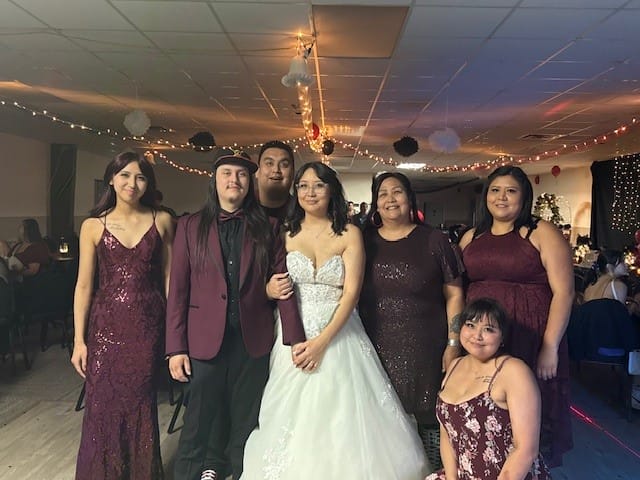
Last October, we celebrated my mom’s 80th birthday in the community where she was born: Gitxsan territory near Terrace, BC. As a survivor of the Alberni residential school, this was the first birthday she can remember celebrating at home.
My dad is a residential school survivor too, coming from Ahousaht—one of the 14 Nuu-Chah-Nulth nations—with ties to Kyuquot through my grandmother.
As a daughter & granddaughter, I carry these family ties—I am a registered Ahousaht band member myself—and as an intergenerational survivor, I also carry the weight left by the residential school system.
Many people don’t realize this history wasn’t that long ago. My late husband, who was younger than me, attended residential school for a time, and I myself am a day school survivor. The legacy of trauma in these institutions still hangs heavy for our people, especially when it comes to other institutions in our country.
“The legacy of trauma in [residential schools] still hangs heavy for our people, especially when it comes to other institutions in our country.”
“A lot of our people live in isolated communities, so when they need care, they are not only away from their families and home, they are also dealing with the culture shock of the big city, and unfamiliar medical terminology.”
We lost my husband to cancer, and throughout that journey, we spent a lot of time in hospitals. I stood alongside him, supporting him as he grappled with the trauma of being back in an institute again and advocating for his needs. Over the years, I stepped into that role for many other family members as well. This is the sort of support that our Indigenous Liaison Nurses (ILNs) offer.
When I first learned about Indigenous liaison nursing, I had an immediate appreciation, because I knew firsthand how vital their role is. I wanted to become an ILN myself; but because my background is in the mental health field, not in nursing, I was never eligible. Then, in 2024 an Indigenous Health Manager position opened up, and I jumped at the opportunity to support this work.
Because of the level of care available in Victoria, patients from all across the Island get transferred to our hospitals. A lot of our people live in isolated communities, so when they need care, they are not only away from their families and home, they are also dealing with the culture shock of the big city, and unfamiliar medical terminology. Our ILNs support Indigenous patients in their care journeys. Walking with them. Helping them understand their care plans. Ensuring they have a voice. I have the honour of working with these nurses as we pursue reconciliation.
In my role, I manage the ILN’s in our Victoria hospitals, and I also collaborate with teams across Island Health to ensure we can honour and support Indigenous patients well: bringing in cultural healers, helping units develop proactive policies, and promoting reconciliation initiatives.
To me, reconciliation is about being open to learning. Learning about who we all are, where we come from, how to honour each other, and how to work together in a good way, because ultimately, we are all one.
I’ve had to do a lot of my own learning when it comes to family. I have five kids and four grandkids who I love to spend time with. They give me so much laughter and they keep me young. I’m transitioning into having an empty nest now, but as I was raising my kids, I had my struggles. Being intergenerational came with its ups and downs; though my parents raised me as best as they could, there were things that they carried from their time in the residential schools that were passed down to me. And some of those things unfortunately have now passed down to my kids and grandkids.
Try as I might, I can’t change that now. I’ve gone through my own journey of learning and healing —my husband taught me a lot as we parented our kids — but what has happened has happened. All I can do is live a better day today. I teach my kids not to live in guilt and not to live in fear. You can’t get anywhere by dwelling in the past. I take a similar approach with my colleagues. There’s a lot of shame that came out of residential schools, but as we pursue reconciliation in our hospitals, I never want my co-workers to feel guilty.
None of us are perfect. We all make mistakes we must learn from. We all have our own journeys of learning and healing. Today we must ask, how can we move forward together? After all, we are all one, and we are all human.
“I teach my kids not to live in guilt and not to live in fear. You can’t get anywhere by dwelling in the past.”
To learn more about reconciliation and hear from Indigenous survivors & community members, you can watch a video series by Island Health here.
They are humans first, who put other humans first.
More than 8,900 caregivers and staff work around the clock in our Victoria Hospitals
#HumansFirst is dedicated to sharing the stories from behind our hospitals’ frontlines. These stories remind us that those who provide care and keep the lights on in our hospitals also have lives outside of them. They have family and friends, they enjoy hobbies and interests, and they have all lived through their own personal triumphs and heartbreaks. Like all of us, they are human, and they have a story to tell.







